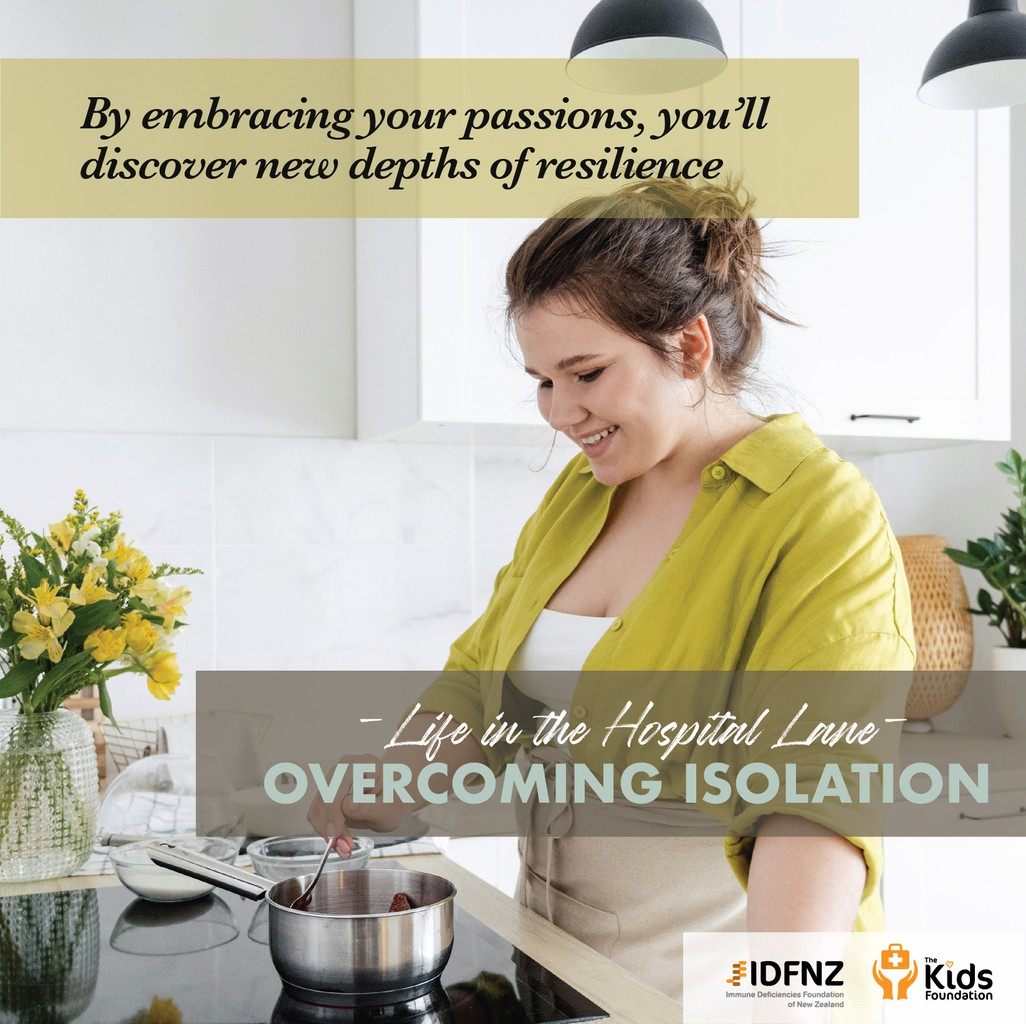Life in the Hospital Lane - Overcoming Isolation - Part2
Wed Sept. 11th 2024

By embracing your passions, you'll discover new depths of resilience
Call a friend
Tell friends and family how you feel. Your emotions can remain under the surface and only intensify when they’re not brought into the open. Expressing your feelings by talking to someone about them really helps to diminish their negative effects. ‘A problem shared is a problem halved’.
Telling a loved one you feel isolated can make it easier to get support that helps loosen the grip of loneliness. Talking about your difficulties can also help your confidant to share any feelings they might be struggling with, making it possible to explore coping strategies together.
Sharing painful or unwanted emotions with others can feel difficult. People may assume you’re so busy caring for your child that you don’t have time to talk. Let them know you’re feeling isolated and lonely and would welcome some company. Even if can’t see someone to confide in face to face, you can maintain closeness by a phone call. Sometimes a quick text can seem like the easiest way to connect, but don’t underestimate the power of speaking to another person. Even a 10-minute phone call may be all you need to feel that bond of friendship, to share your day, and to hear about their day. This gives you a bigger picture to think about, more than a narrow view of the four hospital walls of the room you have been in for over a week! When you want to connect with a trusted friend or family member on a deeper level, try to find ways to make your interactions more meaningful:
Share your experiences and the emotions you’ve felt
Ask questions, and listen carefully to their emotions
Talk about things that matter to you

Shared experiences
Experiencing moments with others can positively impact your well-being. Sometimes, all you need is the company of a friend to enjoy watching a movie or sharing space while working. Caring for a child with illness shouldn’t be a solitary journey—it's something shared. Look for companions on this path, whether it's through local support groups, online forums, or in the hospital hallways. Connecting with those who understand your experience can provide strength and comfort. Engage in conversations with strangers, others who are probably on a very similar journey. It's remarkable how a simple chat, like talking to someone in line at the hospital cafe, can uplift your mood. Offer a compliment, such as admiring someone's dress, or bond over shared experiences like dealing with a sleepless night. Some of the best friends are made when difficult circumstances bring them together.
Fill the silence with sound
Listening to music and other sounds isn’t proven to reduce the feeling of isolation, but it may help to push it back. Sound can help fill the space in your environment and thoughts, which can make it feel less overwhelming. Your favourite playlist may boost your mood, audiobooks might provide a distraction, podcasts, and radio inform and entertain, and their conversational tone may also help create a sense of connection. A favorite TV show or movie can help break the silence in a comforting way, even if you don’t sit down and watch it all the way through. Something simple like opening a window to hear birds and foot traffic below may help you feel more connected to the wider world.

